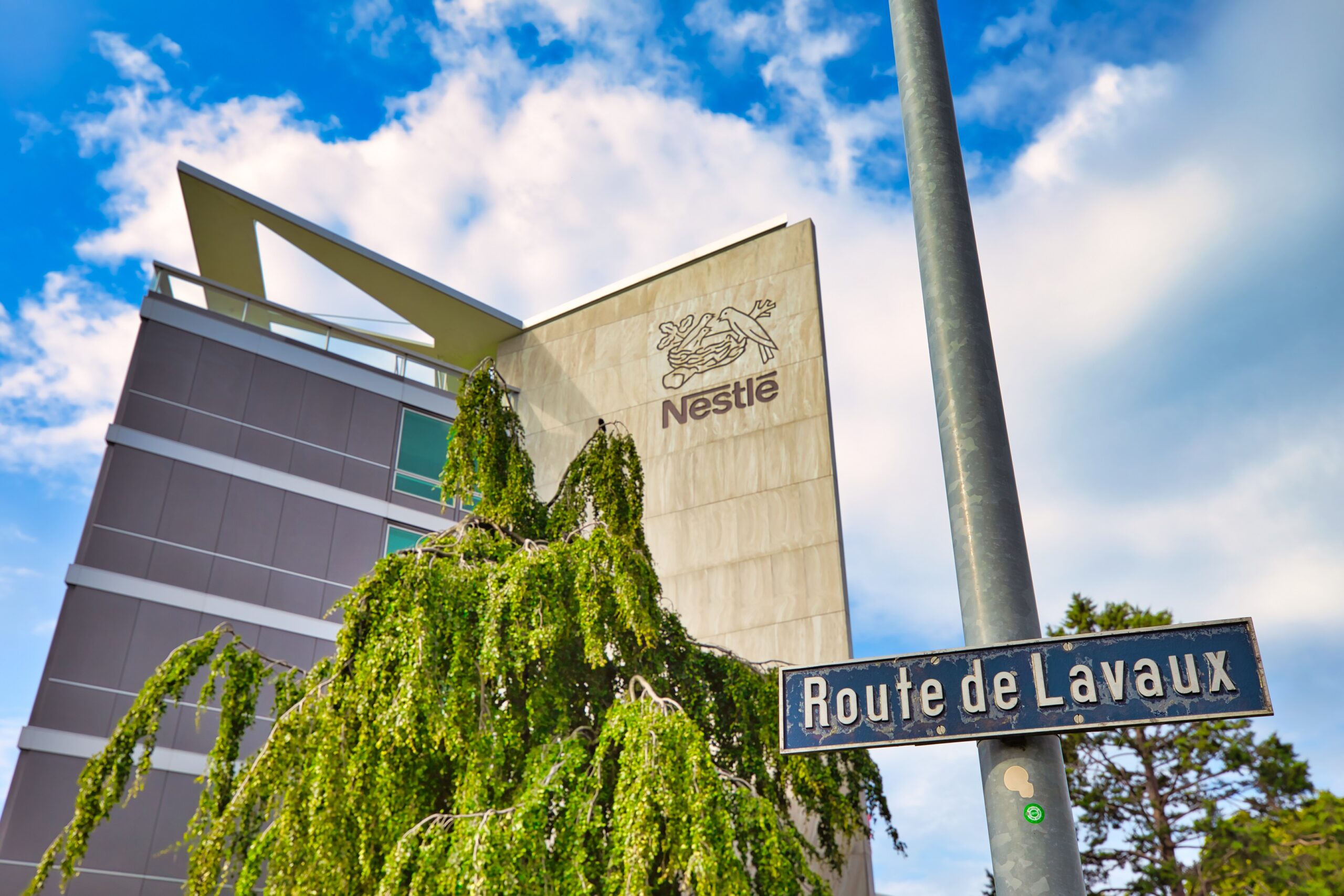
A powerful group of shareholders has accused Nestlé of having a “flawed approach” as the company looks to increase sales of healthier products.
The investors, co-ordinated by investment lobby group ShareAction, said they are concerned a new healthy food target announced by Nestlé last week “undermines the company’s pledge to lead the food industry in ensuring balanced diets are within reach for people around the world”.
Nestlé has set a 2030 target for increasing the sales of “more nutritious” products by 50%.
The KitKat chocolate and Maggi sauce owner said it plans to invest “significantly” to renovate existing products and to drive innovation to aid the initiative.
Nestlé wants to grow the sales of the healthier products by Sfr20bn-25bn ($21.77bn-27.21bn) by 2030, representing around 50% growth over 2022 sales.
But, responding to the Switzerland-based company’s pledge today (3 October), Simon Rawson, ShareAction’s director of corporate engagement, said: “This flawed approach to designing targets calls into question how committed Nestlé is to driving healthier outcomes for society and the economy.
Access the most comprehensive Company Profiles
on the market, powered by GlobalData. Save hours of research. Gain competitive edge.

Company Profile – free
sample
Thank you!
Your download email will arrive shortly
We are confident about the
unique
quality of our Company Profiles. However, we want you to make the most
beneficial
decision for your business, so we offer a free sample that you can download by
submitting the below form
By GlobalData
“If Nestlé is serious about doing its bit to help people enjoy healthier diets it needs to set targets to increase the proportion of food sales classed as healthier using a government-backed nutrient profiling model.”
In a statement co-ordinated with influential Nestlé shareholders, including Legal and General Investment Management (LGIM) and pension provider Nest, it outlined two “crucial” concerns.
Firstly, it argued Nestlé’s aim to increase sales from more nutritious products by 2030 by 50% is broadly in line with its current overall growth guidance of 4-6% per year.
“If its sales of unhealthier products also increase at a similar rate, there will be no improvement in the impact of the food it sells on consumer diets and public health,” the statement said.
And, secondly, the investors and ShareAction have accused Nestlé of choosing to count as nutritious some products to which government-endorsed nutrient profile models do not apply, such as coffee and commercial baby foods.
“This means that Nestlé could meet its target by selling more of these foods with no positive impact on public health,” the statement said.
Maria Larsson Ortino, senior global ESG manager at LGIM, said: “As the world’s biggest food and beverage company, Nestlé has a significant impact on public health, and can raise market standards across the sector by demonstrating leadership. Focusing in on a healthier diet, through a healthy food system will also have many knock-on effects including those on climate, nature as well as on the economy.
“There are aspects we applaud, including Nestlé’s use of an independent internationally recognised nutrient profile model, Health Star Rating (HSR), across its entire global portfolio, and the company’s announcement of a public target on increasing the sale of their healthier products.
“However, the announced target did not go far enough, the company did not take the opportunity to take a bolder step and set a specific, measurable and ambitious target whereby at least 50% of their sales would come from products that meet healthy thresholds by 2030.”
Nestlé’s portfolio’s health credentials have come under scrutiny from ShareAction in the past. In March, it stated the company was still “far too reliant on the sale of less healthy food and drink products”.
Just Food asked Nestlé for its response to the latest criticism.
A spokesperson said: “We have set an ambitious target that is at the upper end of the growth guidance we have provided for the company.
“We believe that all of our portfolio can be part of a healthy and balanced diet and intend to grow the more nutritious part by Sfr20-25bn by 2030. This will be accompanied by strong measures to strengthen responsible marketing and support nutritious choices.”
